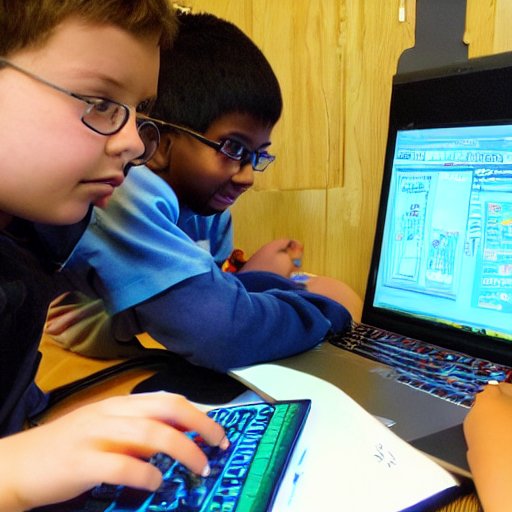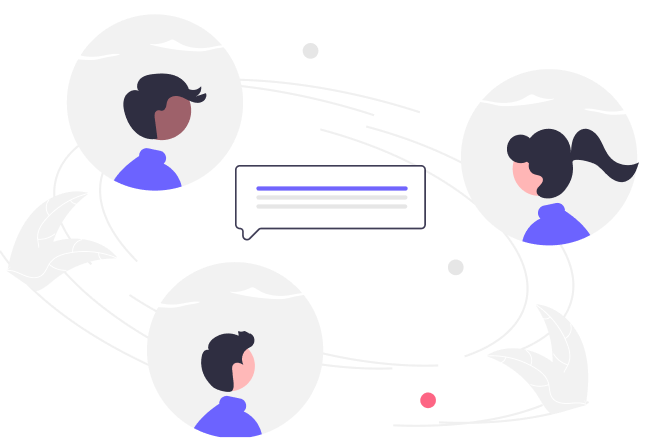
Python Game Wizards: Unleashing Creativity through Code for Kids ( Grade 4 - 12 )
In the age of GenAI, where AI models are transforming industries, there's one skill that stands out as essential—Python programming.
Python isn’t just a language; it's the key to unlocking the power of AI, data science, automation, and beyond.
With our Python course, you'll gain the skills not just to use AI, but to push beyond its limitations. Whether you want to automate your workflow, analyze data, or develop the next big app, Python is your gateway to success.
This game development course for kids in Grade 4-12 introduces fundamental programming concepts and provides an interactive and engaging platform for learning. Through this course, kids will gain valuable skills and knowledge that will benefit them in various ways:
-
Introduction to Programming: The course introduces kids to the basics of programming, such as variables, loops, conditional statements, and functions. Understanding these concepts fosters computational thinking, problem-solving skills, and logical reasoning, which are essential in various fields beyond game development.
-
Creativity and Expression: Game development allows kids to express their creativity through storytelling, character design, and level creation. It enhances their imagination and encourages them to think critically about game mechanics and player experiences.
-
Hands-on Learning: The course is project-based, providing hands-on learning experiences. Kids get to apply what they learn immediately by creating their own games, fostering a sense of accomplishment and boosting their self-confidence.
-
Multidisciplinary Skills: Game development incorporates art, design, logic, and storytelling. Kids will learn and apply a range of skills, including graphic design, sound editing, and user interface design, promoting a multidisciplinary approach to problem-solving.
-
Teamwork and Collaboration: If the course allows for group projects, kids will learn the value of teamwork, communication, and collaboration. Working together on a game project teaches them to listen to others' ideas, compromise, and divide tasks efficiently.
-
Focus and Perseverance: Building a game from scratch requires dedication and perseverance. Kids will learn to stay focused on their goals, overcome obstacles, and iterate on their projects, instilling valuable life skills.
-
Digital Literacy: In today's digital world, understanding programming concepts and game development gives kids a head start in developing digital literacy. They will be better equipped to understand and interact with technology around them.
-
Problem-Solving Skills: Game development involves solving complex problems related to game mechanics, interactions, and design. Kids will develop critical thinking and problem-solving skills as they identify and solve issues in their games.
-
Presentation and Communication: If the course includes project presentations, kids will improve their presentation and communication skills, building confidence in sharing their work with others.
-
Fun and Engagement: Above all, the course offers a fun and engaging learning experience. Games have a natural appeal to kids, making the learning process enjoyable and fostering a love for learning and exploring new ideas.
By completing the game development course, kids in grades 4-12 will have a solid foundation in programming concepts, creativity, and problem-solving skills. Whether they pursue a career in game development or explore other fields, these skills will benefit them in their academic and personal growth, preparing them for a technology-driven future.
Curriculum
- 11 Sections
- 84 Lessons
- 31 Quizzes
- 0m Duration
Introduction to Python
- Course Logistics
- To Parents
- Introduction to Computer Architecture, Programming and Python
- Why learn Python
- Homework - create folder, file in OS GUI, command line terminal, VSCode
- Python interactive shell
- Jupterbook: Google colab in cloud
- Advanced topic: Python Virtual environment and Version control system
- Practice: ascii-art using Virtual Env with vscode
Conditional States and Loops
- Python Variables and Data Types
- Homework: what is the final value
- Advanced topic: Python Global Variables
- Python Input and Output
- Python Basic Math Operators
- Advanced Topic: Python Indentation and Coding Style Tutorial
- Homework: python input, output and math operation
- If Statements and Decision-Making in Games
- Homework Simple game using if /else
- Homework review: if/else
- Combining Conditionals and Loops for Game Logic
- Loops (while and for) for Game Mechanics
- Homework For and while loop
- Design a game scenario (number guessing game)
- Review/Reference for a simple number guessing game
- Python random Module
- Hands-on lab 2: Rock, Paper, Scissors Game
- Rock, Paper, Scissors Game solution
Functions and Modular Programming
- Introduction to Functions and Their Importance
- Python Function Return
- Creating Custom Functions for Game Actions
- Home work: Farm problems ( total number of legs of all the animals. )
- Recursive function call
- Home work: factorial function in iterative way
- Home work: Write a Fibonacci number function
- Review Fibonacci number function
- Modular Programming Approach in Game Development
- Advanced topic: What is difference between module, packages, library?
- Homework: Write Temperature Converter ( from Celsius and Fahrenheit ), Miles to Kilometer converter Module etc
- Advanced Topic: async function
- Review python basic
Python Lists , Tuple, Set, Dictionary and Data Manipulation
- Python string
- Homework: Palindrome
- Homework: Password Generator
- Review string homework
- Lists for Game Data Storage
- Basic List Operations and Manipulation
- Using Lists to Manage Game Assets
- Python tuple
- Home work Python program to find smallest number in a list
- Home work: Python program to print even numbers in a list
- Homework review: even number in the list and set
- Homework: Python program to find the Strongest Neighbour
- Homework: List Overlap
- Python sets
- Python Dictionary
- Difference between list, tuple, set, dictionary
- Python Comprehensions: Simplifying Iterative Constructs
- Homework: Python program to find the sum of all items in a dictionary
- Home work: Sort Dictionary By Key in Python
- Homework: shopping list
- Review homework
Python Classes, OOP ( Object Oriented Programming )
- Introduction to Python Classes
- why self is used in python OOP
- homework : basic oop
- Working with Attributes and Methods
- Python Class Inheritance and Static Variables vs. Instance Variables
- tic_tac_toe
- Sample code for tic_tac_toe
- Python Private Attributes and Methods
- Method Overloading vs. Method Overriding in Python
- Python polymorphism
- Advanced topic: Duck Typing vs. Polymorphism difference
- Python Static Method and Class Method
- simple game using OOP
- Simple OOP Game Example Implementation:
- Advanced techniques: Libraries and Modules
Game Development Fundamentals: Introduction to Arcade - Python game frame work
- Introduction to Python Game Development and popular frameworks
- Python game frame works overview
- Comparison of Popular Python Game Frameworks with code
- Python Turtle
- Introduction to the Python Arcade Library
- Homework draw shapes with different color, radius, and background
- Homework Review
- Adding Movement and Animation
- Animation Circle, rectangle, ellipse , and bound around the boundary like the sample we learned in class
- Add game interaction: Mouse, Keyboard and Joystick
- Keep the ball/rectangle/elipse within the boundary of window using mouse and keyword
- Adding Sound and Music
- Homework: Animating a ball using mouse/keyboard to move up/down/left/right, and hit the wall, bounce back with background musci and hitwall sound
- Review Home work: wall/ball/music/mouse/kb
Advanced Game Development Techniques
- Game Collision Detection
- HOMEWORK: add keyboard move to the sample code , and we can move player using keyboard to collect coins
- Advanced techniques: Moving Sprites and Coins
- Home work: add two players to the sample sprites
- Review Homework : two players
- Advanced Techniques: Using Sprites to Shoot
- Homework: add space_key to shoot and using different laser color and sounds
- Advanced techniques: Sprites and Walls
- Using a Camera for Scrolling
- Homework: add player position on the GUI camera
- Platformers
- Platformer add moving obj and view
- Pymunk Physics Engine
- Distribute Arcade Game 1 : Bundling a Game with pyinstaller
- Distribute Arcade Game 2 : Bundling a Game with nuitka
- Homework: add ladder to sample platformer code
Building Simple Games (Duration: 4 weeks)
- Snake game
- Tetris Game
- More examples
- Puzzle or Maze Game
- Game Optimization and Performance
- Final project demo
Final Project
- Guidelines
Game Testing and Debugging (Duration: 1 week)
- How to testing and debug
Wrap-up and Next Steps (Duration: 1 week)
- Next steps
You must be logged in to submit a review.



